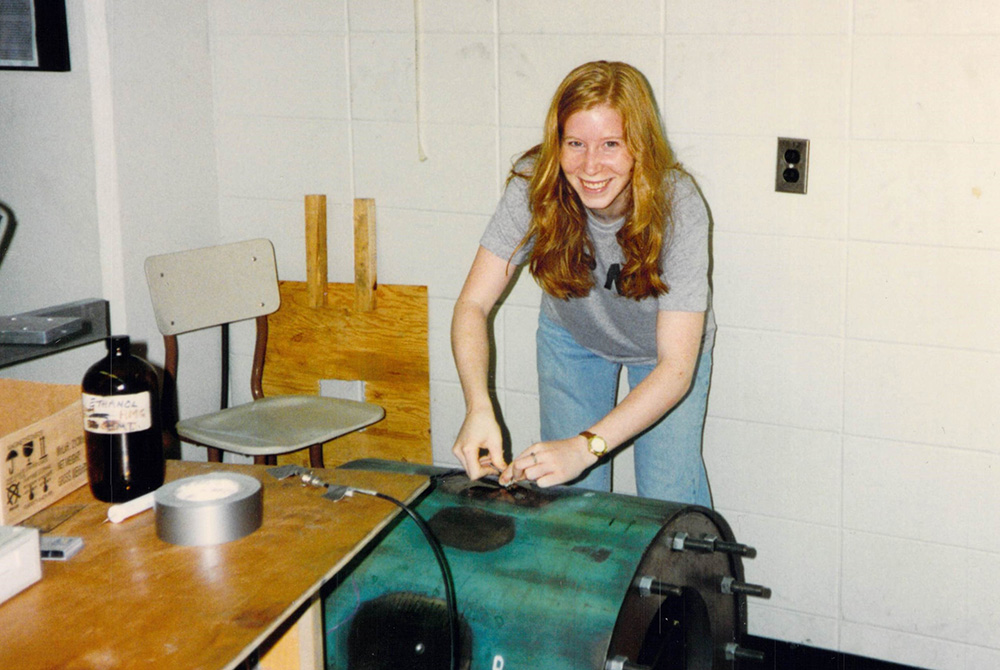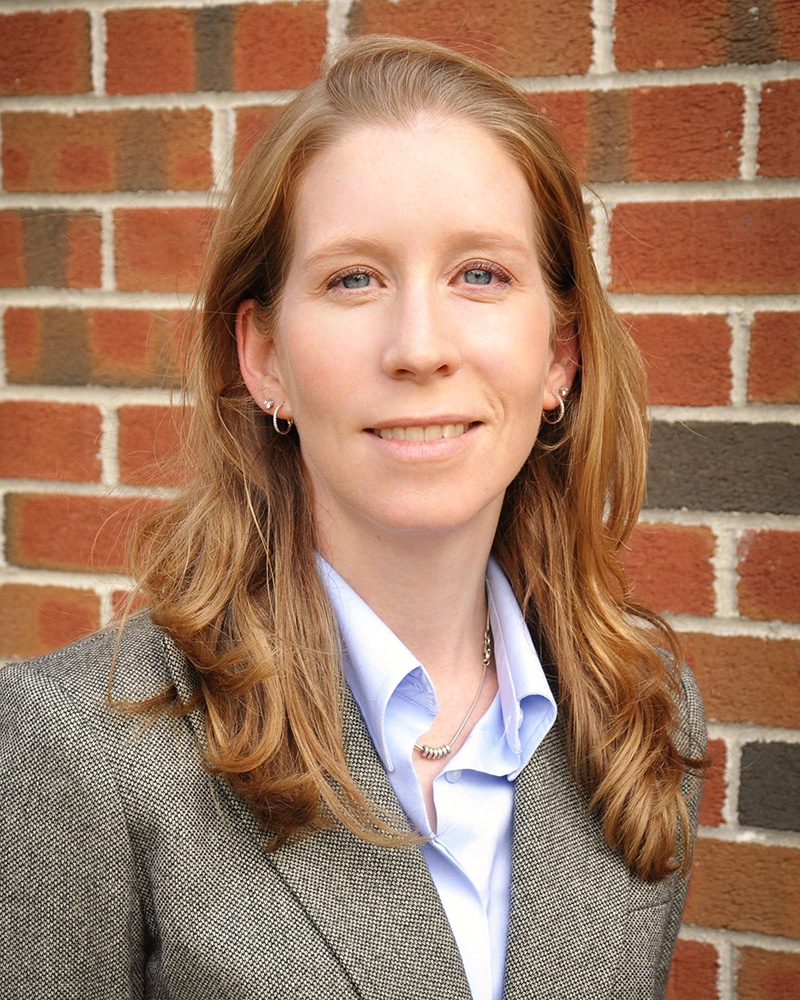Andrea Corey, Sc’98, made the decision to not take the graduate path like many Engineering Physics students and instead decided to work in the private sector upon graduation. From small firms to big companies, from writing code to sitting in management roles, Andrea has come across many opportunities in industry.
In this Q&A we learn about what Andrea is doing now at FreshBooks, her unique career path as a software developer, and why she decided against graduate studies.
What does FreshBooks do?
FreshBooks does cloud accounting for small businesses. Many small business owners deal with a lot daily, and they don’t want to spend too much time doing accounting. FreshBooks takes the complexity out of accounting using intuitive software, and we offer support for customers to make the whole process of accounting easier. Especially if our customers are ‘creatives’, such as designers or home renovators, their craft is something that is not related to accounting, making it harder for them to learn the basics.
In my role I participate in a lot of discussion regarding the operations within the company. Right now, we are working to scale up the business and teams. It’s very exciting to think about what our company will look like once it’s grown to have more employees, and we must plan for any hurdles that we may come across as we grow. We are also constantly working on improving our software since some components of the software are on the older side and there are many new patterns we can employ to make our software easier and faster to build upon for the future.
What was your career path? Internships/first job?
When I was looking at jobs after graduating, I was deciding between two paths: doing graduate work and working in industry. The path that many people in engineering physics took was doing graduate work, but I decided I wanted to use my engineering skills and I had some school loans to pay, so I joined the work force. I started out working in downtown Toronto where I joined a small firm called Ehvert, which specialized in writing custom software for customers’ needs. Truthfully, one of the main reasons I joined that company was because I wanted to live in the city of Toronto, but I ended up staying in the field of custom software development for a couple of years between working at Ehvert and another firm called MobileQ.
In 2000 some old colleagues from Ehvert invited me to join a new company they had started called Eloqua. The tech space in Canada back then was not as developed as it is now and the company itself had very little funding, but after some thinking I decided to join them. Over time the company grew. We received funding, venture capital, and we even issued an initial public offering (IPO). Thirteen years after founding, the company was sold to Oracle, and I became their Vice President of Quality Assurance.
A year later the same co-workers were starting a new company, Nudge.ai, so I joined them again. Unfortunately, our business model failed in the end, and it was shut down after almost six years. A few months later in 2020 I came to FreshBooks, where I now lead several teams as their Senior Director in Engineering, where I help teams develop and maintain our software.
What is your greatest success so far in the industry?
At Eloqua I was on the team that built the first automated marketing system, and some of the code I wrote in that program from 2003-2008 is still used in production at Oracle today. The software itself works well and gets the job done, but the fact that it’s still being used at many large companies almost twenty years later is amazing.
How has your time at Queens shaped your career?
When I was at Queen’s I didn’t do a lot outside of Engineering Physics. In my last two summers of undergrad, I worked for the physics department in the magnetics lab at Sterling Hall and at Queen’s Telethon in the evenings, and I joined the Queen’s Solar design team when it was focused on designing solar cars and not solar buildings.
While working in a lab was enjoyable, I found that the path of graduate work was very long and that I would see progress much quicker at a small software company. When I graduated in 1998, the economy was quite good, and I was able to come across many opportunities in industry.

What did you wish you knew before entering the workforce?
When I was just entering the workforce, I wasn’t a great advocate for myself. I was in a position where I was super grateful for having a job, and I wasn’t so keen on pushing those limits any further because I lacked confidence. I was fortunate enough to have these opportunities come and find me, but in hindsight I should have been the one to activate my own growth.
How do you define ethics/how does ethics play a role in your career?
As a licensed professional engineer, I have a duty to society above anything else. The decisions that engineers make have an impact on society and I take that very seriously. I would definitely have some trouble working in certain industries that counter or push the boundaries of my ethical standpoint. When it comes to working with cloud accounting software it’s easy because the line between what is ethical and what is not is very clear.
In terms of my personal ethics and what I believe in, just because something is legal doesn’t mean it’s not harmful. I believe in knowing what is good for me and I try to avoid the things that I think aren’t, all while respecting the decisions other people make for themselves. Having that honesty can help you go far in life and build better relationships with the people you want to be with.
What personal characteristics do you feel are necessary to be a successful engineer?
In any position at any company, communication is very important. When you’re working with a set of peers with different backgrounds it is important to have the willingness to communicate those things to you can all be successful as a team. You can be the best engineer ever with great problem-solving skills, but if you can’t communicate your ideas to your co-workers, you will be hampered as an engineer.
